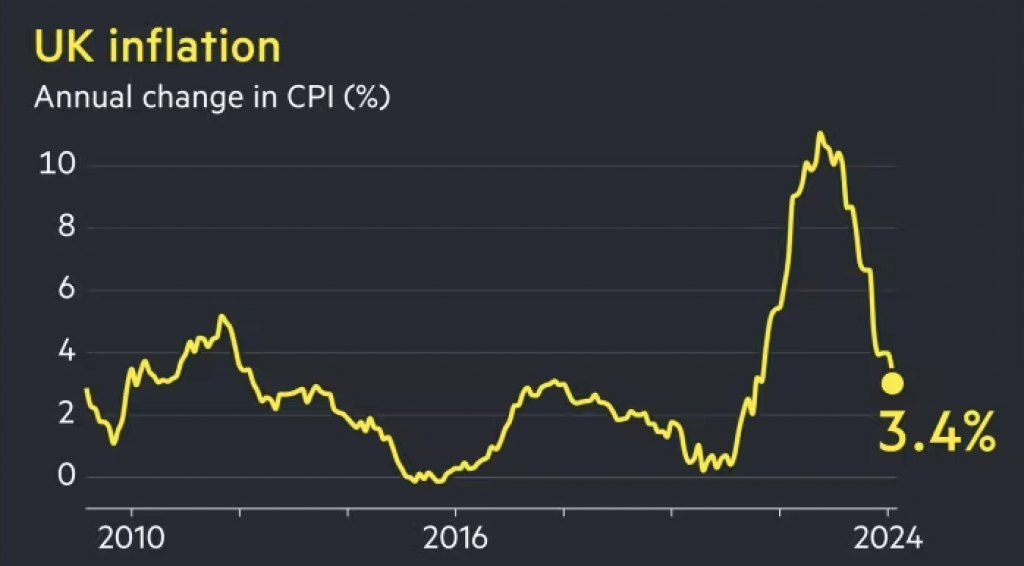UK inflation has dropped to 3.4% in February, which is the lowest it’s been in over 2 years. This is a good sign that the economic plans put in place are working to slow the rate of inflation. A day ahead of the base rate review, how will this affect the decision made by the Monetary Policy Committee?
A better-than-predicted UK inflation rate
The drop to 3.4% is a welcome improvement on the predicted inflation rate for February of 3.6%. This is the lowest inflation has been since September 2021. However, it’s still much higher than the 2% target set by the Bank of England (BoE). The reduced rate of inflation doesn’t mean that prices are coming down but that they’re increasing at a slower rate.
The latest inflation data shows that the Consumer Prices Index (CPI) rose by 3.4% in the year to February 2024, which is down from 4% in January. Meanwhile, core CPI (excluding energy, food, alcohol and tobacco) has also fallen. It rose by 4.5% in the year to February 2024 against the anticipated 4.6%. This is down from 5.1% in January.
How is inflation measured?
The Office for National Statistics (ONS) keeps track of inflation by checking the prices of a broad range of items using a ‘basket’. The costs of hundreds of everyday goods and services in this basket are recorded. The overall basket price is referred to as the Consumer Prices Index (CPI).
What’s included in the basket changes regularly to reflect shopping trends. For example, hand sanitiser was removed in 2024 and air fryers were added. Inflation is calculated by observing the price changes over the last 12 months compared with those from the previous year. The difference between the prices is the rate of inflation.
How might the new inflation rate affect the base rate?
The next meeting to discuss the base rate is being held by the Monetary Policy Committee (MPC) on Thursday 21st March. Whilst the lower rate of inflation is a positive sign, it doesn’t necessarily mean that the base rate will be reduced as a result. Despite the better-than-predicted drop in inflation, the rate of 3.4% is still higher than the Bank of England’s 2% target and the cost of living is still rising. The BoE has made it clear that it won’t rush to reduce the base rate until it’s certain that inflation is under control. If inflation persists, there may even be future interest rate increases. As such, it’s expected that the base rate will remain unchanged at 5.25% following the vote by the MPC.
Will the inflation rate affect your mortgage?
Lenders base their rates on various factors, including inflation and the cost of borrowing. Mortgage rates had recently started to come down as a result of the falling inflation rate. However, this trend has changed again following signs of a base rate cut being pushed back. Many lenders are now increasing their rates again and current mortgage deals are going very quickly.
If you want to discuss your existing mortgage deal and the alternative options available, just give us a call on 01322 907 000. Our mortgage brokers will search for the best deals available, giving you impartial advice and explaining the terms and costs of each so that you can make the best decision for your needs.

